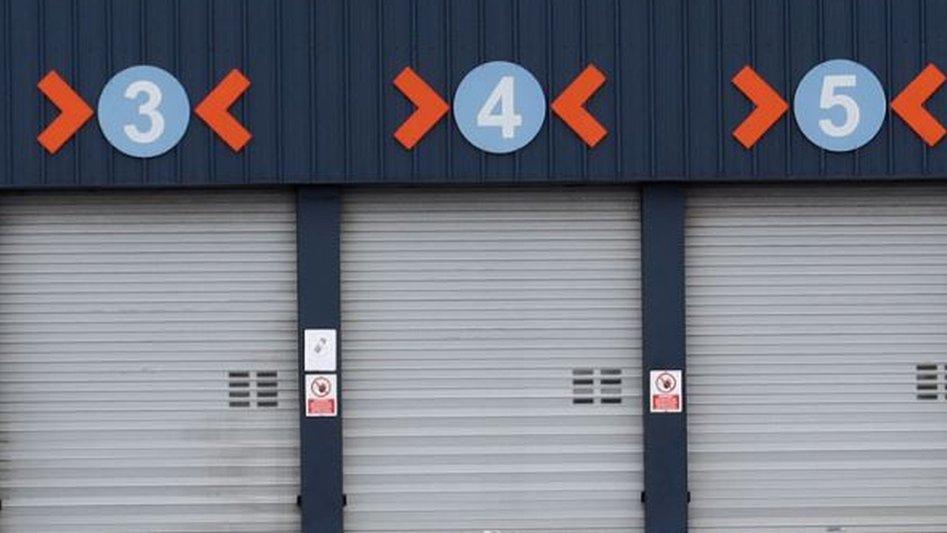MoT exemptions: Two million certificates issued in NI
- Published
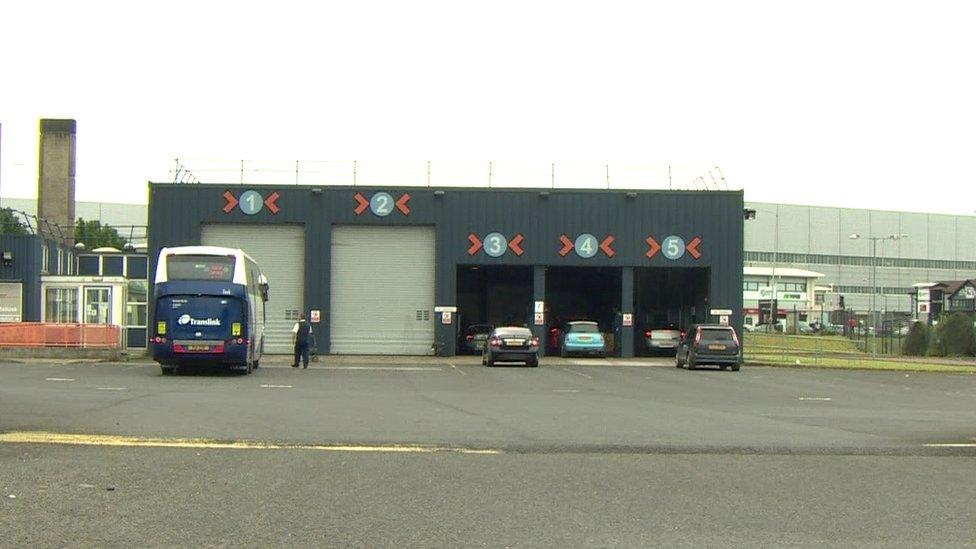
MoT testing was first cancelled due to cracks in vehicle lifts
Two million temporary exemption certificates (TECs) have been issued by the Driver and Vehicle Agency (DVA) in NI.
Certificates were first issued when MoTs were cancelled after cracks were found in vehicle lifts in testing centres in January 2020.
More TECs were issued as test centres closed due to the Covid-19 pandemic.
The certificates extend a previous MoT test and mean motorists can continue legally driving their cars.
However, owners are responsible for ensuring their vehicles are road worthy.
In the 12 months to January 2020, just under one million MoTs were carried out in NI. Fewer than 200,000 were carried out in the following 12 months.
The Department for Infrastructure (DfI) told BBC News NI that, in total, 2.3m TECs were issued from January 2020 until 17 February 2021, in response to a Freedom of Information request.
They were initially issued for three, four or six months, but were later extended to cover 12 months.
This means some car owners may have been issued with more than one certificate.
The department said it could not "reliably track" TEC history for individual vehicles, but it was possible for a vehicle to "have up to four TECs in a 12-month period".
It was unable to say how many cars that have been issued a TEC have since been tested, as the DVA system does not hold information on vehicles that have not made an application for a test.
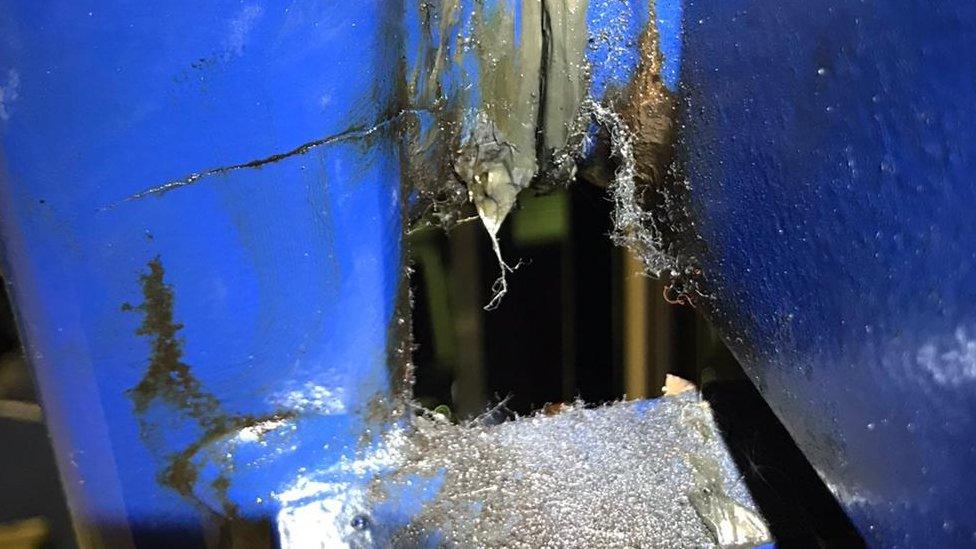
The BBC obtained a picture of a crack in a lift at one of the vehicle test centres in Northern Ireland
In January 2020, an inspection of all vehicle lifts in Northern Ireland's 15 MoT centres detected "signs of cracking" in 48 of the 55 lifts.
Testing was suspended, before thousands of tests were then cancelled and TECs issued.
As the coronavirus pandemic took hold, the MoT centres remained closed and some were used as Covid-19 testing centres.
Vehicle testing for priority groups resumed in July 2020, with testing for some vehicles following in August.
However, testing was only allowed if it could be done safely and within social distancing requirements, meaning the number of tests carried out was greatly reduced.
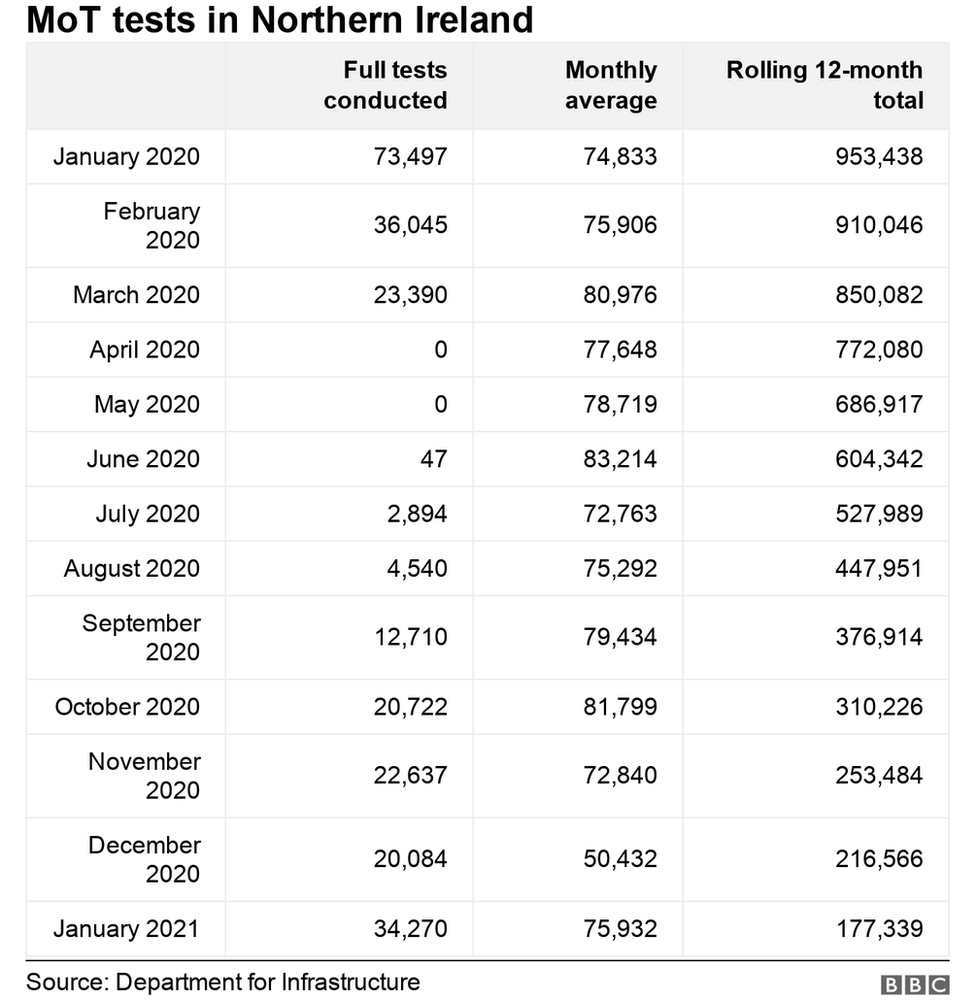
All 15 test centres in Northern Ireland are currently testing vehicles, but exemption certificates are still being issued and there is a large back log to get through.
DVA statistics published by the Department for Infrastructure show that 953,438 tests were carried out in the 12 months to January 2020.
The total for the 12-month period ending in January 2021 was 177,339.
As of Wednesday, there were almost 49,000 private cars booked in for an MoT test.
DfI said the DVA was focusing on testing "priority category vehicles including those vehicles that are not able to avail of a TEC and those with TECs due to expire".
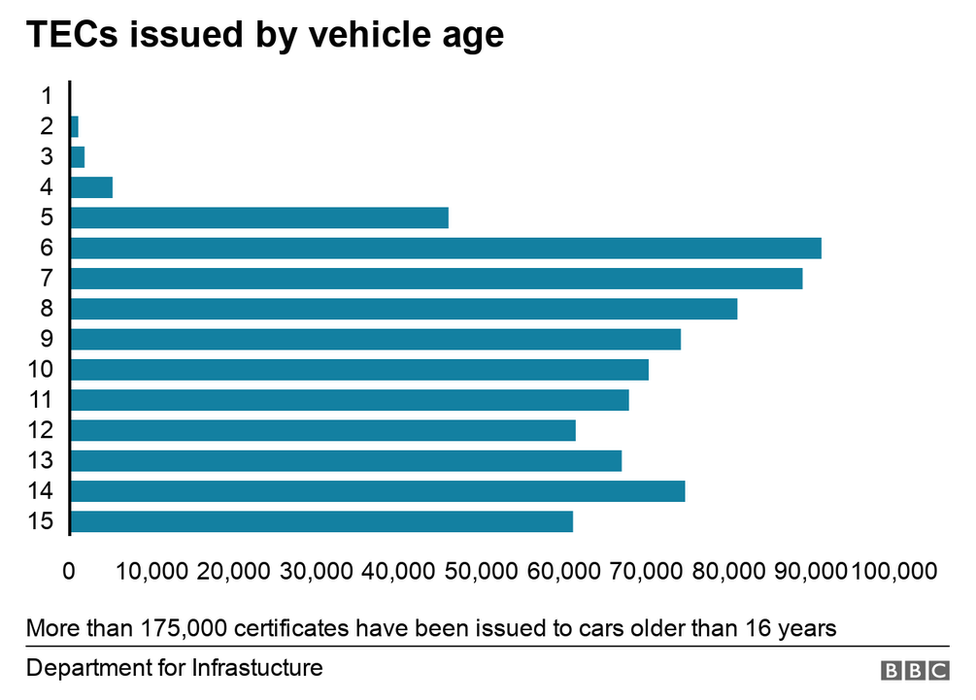
Earlier in February, Infrastructure Minister Nichola Mallon said existing TECs would be extended by a further four months, so that drivers "can legally keep their vehicles on the road for their essential journeys".
However, from 26 March, testing for older vehicles, aged 10 to 39 years, is being brought forward so they can be tested before their TECs expire.
"Further TEC extensions will not be applied to these vehicle categories to ensure that any road safety concerns in these older vehicles are tested and rectified through the MOT testing process," a departmental spokesperson said.
Car owners whose cars were due an MoT in the first three months of 2021 are eligible for a 12-month TEC.
You can check the MoT status of your vehicle on the gov.uk website, external.
Related topics
- Published11 February 2021
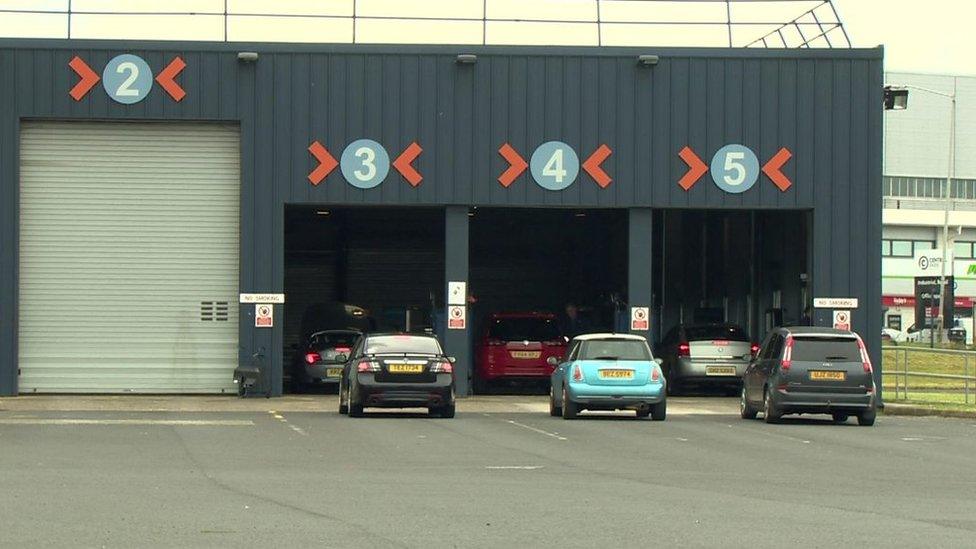
- Published1 September 2020
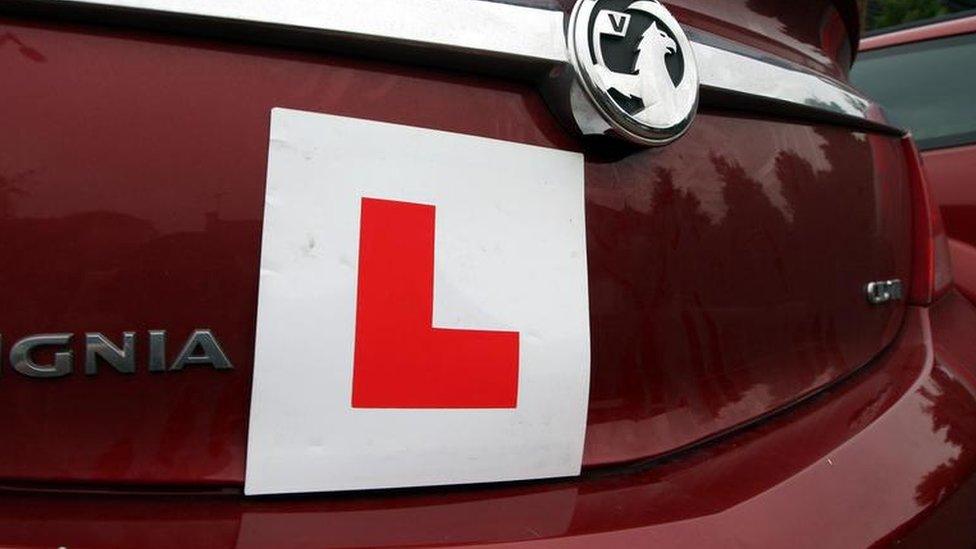
- Published29 January 2020
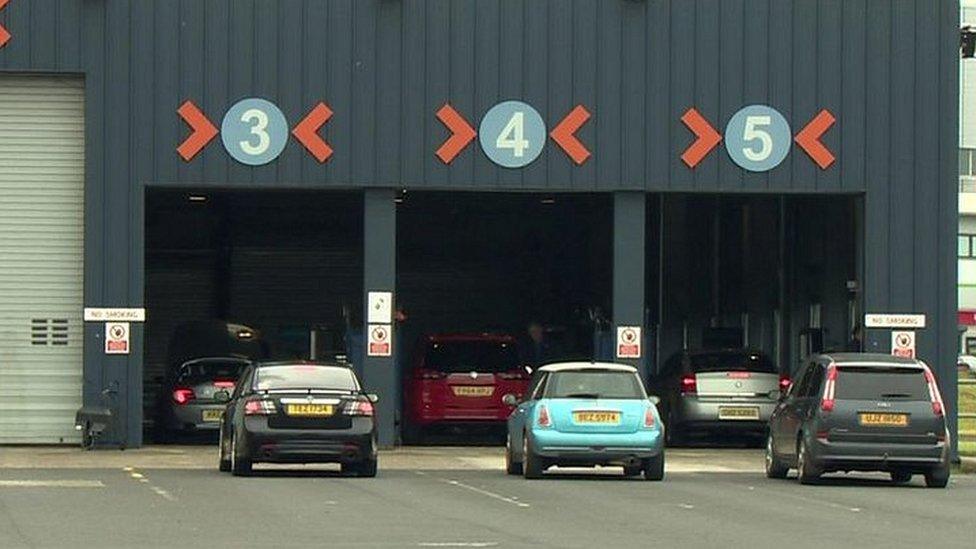
- Published28 January 2020
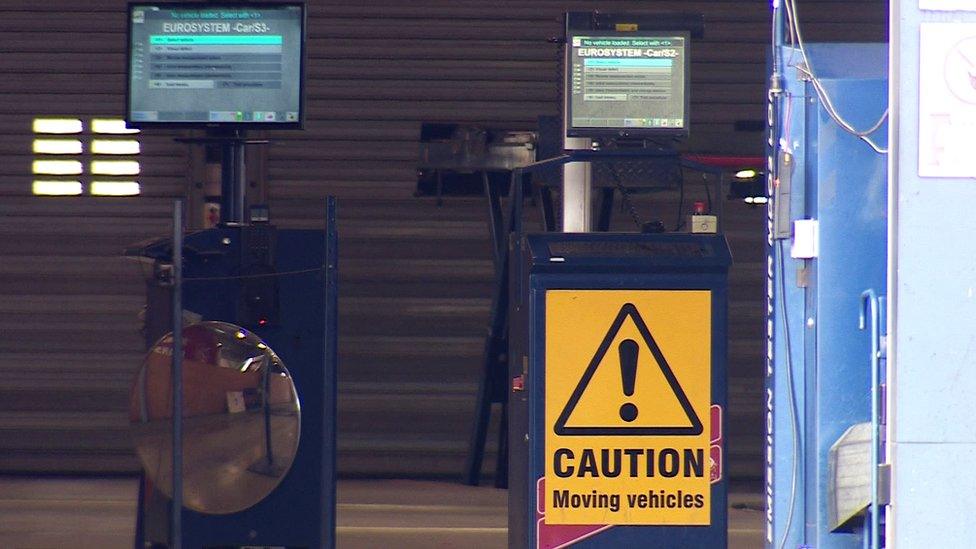
- Published1 April 2020
